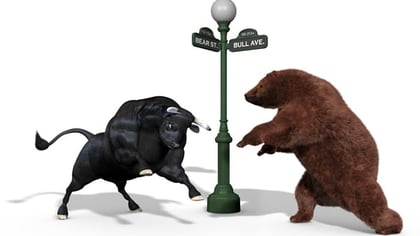The U.S. economy is moving into a late cycle phase after almost 10 solid years of growth, but according to strategists at T. Rowe Price that’s no reason for investors to panic.
“A late cycle can last a long time,” said Andy McCormick, head of U.S. Taxable Bond at T. Rowe Price global market outlook press briefing. “It doesn’t necessarily lead to recession.”
Alan Levenson, the chief U.S. economist of the Baltimore-based mutual fund firm, expects U.S. growth will slow from 3% this year to 2.25% next year, but he doesn’t expect a recession before at least 2020. By then Fed tightening, a flat yield curve and fiscal stimulus, which will still boost growth in 2019, will become headwinds for the economy, said Levenson.
Levenson expects the Fed will hike another 175 basis points, which would push the Fed Funds rate up to a range of 3.75%-4%, well above the 3.4% median forecast of Fed policymakers, according to the St. Louis Fed, and of other Wall Street economists. “2020 will be a period of greater risk to the economy,” said Levenson.
(Related: 3 Ways to ‘Bear-Market Proof’ Your Business)
Fear that the Fed will go too far in tightening monetary policy coupled with fears of a “potential trade war with China” has been driving the recent downturn in stocks, said John Linehan, chief investment officer of U.S. Equity Value at T. Rowe Price. The S&P 500 has lost 7% since the last week of September.
He noted that the 10-year bull market has had “the most robust earnings recover ever” while the economic recovery is “probably the most tepid” post-World War II, which suggests it probably has more room to run.
“Bull markets don’t die of old age but economic downturns or speculative excess,” said Linehan. The U.S. stock market hasn’t experienced either in the current cycle.
Linehan said the U.S. stock market is “setting up a backdrop for value to begin working,” after years of underperformance compared to growth stocks. “Over the next three to five years the prospects for value look good,” said Linehan.
In the meantime U.S. stocks will be caught up in a tug of war between bearish factors and bullish factors, said Linehan. On the bearish side are Fed tightening, potential trade war and rising corporate, consumer and government debt. On the bullish side, strong economic growth with historically low inflation, strong consumer and business confidence, earnings growth, innovation and a supporting electoral cycle.









 November 14, 2018 at 10:54 AM
November 14, 2018 at 10:54 AM











